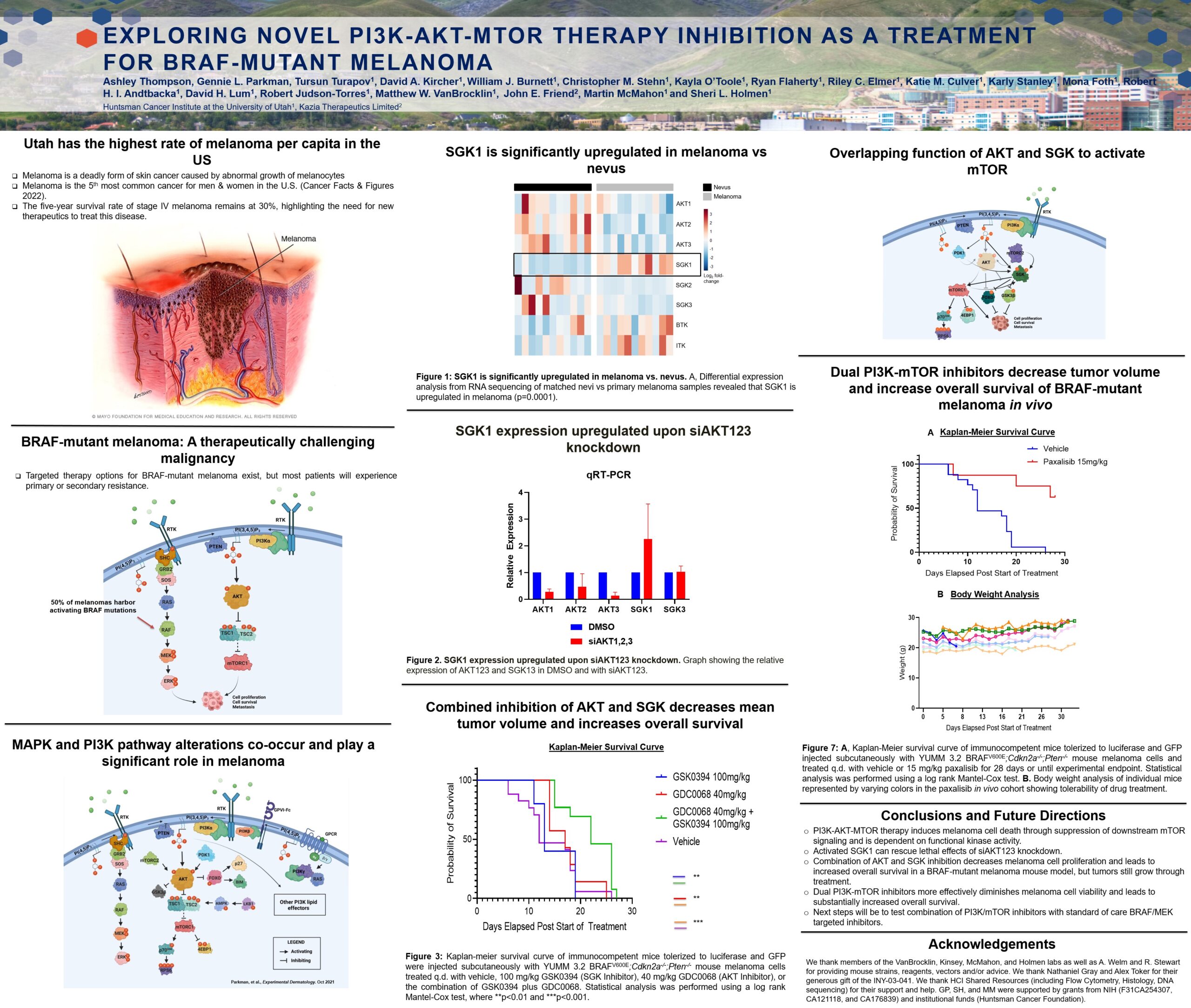Presenter Name: Ashley Thompson
Description
Despite emerging therapies, melanoma progression and metastasis is the leading cause of death for skin cancer patients (Liu, et al. 2014). There is a 15-20% five-year survival rate for Stage IV melanoma, proving the need for new targeted therapies. The phosphatidylinositol-3'-kinase (PI3K) and mitogen-activated protein kinase (MAPK) pathways play a significant role in cell proliferation. In the MAPK pathway, BRAF is the most commonly mutated proto-oncogene found in melanoma metastases. However, mutation of this gene alone does not lead to melanomagenesis (Parkman, et al. 2021). Melanomagenesis requires further mutational burden within other signaling pathways, such as the PI3K pathway. AKT, a downstream effector of the PI3K pathway, promotes activation of mTORC1, a protein that drives cell proliferation. SGK is highly homologous to AKT, sharing downstream effectors and promoting mTORC1 activation (Sommer, et al. 2013).
Therapies targeting BRAF have shown success in inhibiting the MAPK pathway; nevertheless, the PI3K pathway remains active and able to promote cell growth. To combat the activation of the PI3K pathway, therapeutics have been developed to inhibit AKT and PI3K. However, PI3K and AKT-targeted therapeutics have not successfully reduced melanoma metastasis and thus have not been FDA-approved. When AKT is genetically inhibited, SGK is overexpressed, rescuing the knockdown of AKT (unpublished data from the Holmen lab). Therefore, to decrease the proliferative effect of the PI3K pathway, combined inhibition of AKT and SGK remains a viable strategy. We report that inhibitors against AKT and SGK decrease melanoma cell proliferation in vitro. Furthermore, combined AKT and SGK inhibition results in decreased tumor progression and increased overall survival (p=0.0031) in a BRAFV600E-driven immunocompetent mouse melanoma model. These findings demonstrate that dual targeting of SGK and AKT may represent a novel therapeutic strategy to abrogate melanoma growth. "
University / Institution: University of Utah
Type: Poster
Format: In Person
Presentation #A80
SESSION A (9:00-10:30AM)
Area of Research: Health & Medicine
Email: u1253529@umail.utah.edu
Faculty Mentor: Gennie Parkman

